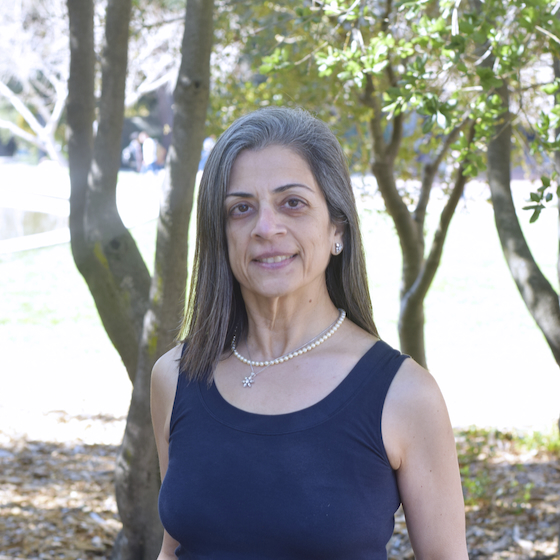
Sabeeha Merchant, PhD
Sabeeha Merchant has a record of accomplishment in the context of understanding mechanisms operating in eukaryotic cells to maintain metabolism in face of trace metal deficiencies. Merchant documented multiple examples where eukaryotic cells economize the use of potentially growth-limiting elemental deficiencies by replacing a favored abundant metalloprotein catalyst with a back-up substitute that uses no metal or a different metal. With the copper-nutrition-dependent switch between Cu-containing plastocyanin and heme-containing cytochrome c6 in Chlamydomonas as a prototype, Merchant used classical genetics, genomics and biochemistry to discover key components of a nutritional copper signaling pathway: a conserved transcription factor CRR1, copper response elements to which CRR1 binds for activating transcription, hundreds of target genes whose increased expression is required for the cell’s acclimation to the copper-deficient nutritional state, and the E3 ligase, CEHC1, responsible for degrading CRR1 in the copper-replete state. A similar iron-sparing mechanism where a flavin-containing flavodoxin replaces an iron-sulfur-containing ferredoxin, discovered by Merchant in Dunaliella spp. operates broadly in prokaryotic and eukaryotic microbes throughout the tree of life. In Dunaliella spp. the switch to flavodoxin is accompanied by re-organization of the light-harvesting antenna proteins, which Merchant and co-workers visualized recently by cryoEM.
Merchant is also considered a leader in algal genomics. She uses systems biology, including comparative genomics, transcriptomics and proteomics to dissect metabolic networks related to carbon metabolism and photosynthesis in diverse green algae. She was the lead author of the Chlamydomonas genome paper and has since used next-generation sequencing methodologies to lift up globally important green algal species to the level of model organisms for laboratory-based discoveries. In a new venture, she is using an oleaginous microalga, Auxenochlorella protothecoides, as a synthetic biology platform for producing designer lipids.
Merchant was educated at the University of Wisconsin where she earned degrees in Molecular Biology and Biochemistry. After post-doctoral studies in Lawrence Bogorad’s group at Harvard University, she joined the Chemistry and Biochemistry faculty at UCLA. Since 2018 Merchant is a member of the Departments of Molecular and Cell Biology and Plant and Microbial Biology at the University of California in Berkeley where she holds the Warren C. Eveland Chair in Biological Sciences. Her scientific accomplishments are recognized by a Guggenheim fellowship, major awards from the American Society of Plant Biologists, the National Academy of Sciences and the Alexander von Humboldt Foundation, and election to the National Academy of Sciences, American Academy of Arts and Sciences and the Leopoldina. Merchant was recently selected as a Gordon and Betty Moore Foundation Investigator in Aquatic Symbiosis. She serves on advisory committees in the US and abroad, was the Editor-in-Chief of The Plant Cell and has been the editor of the Annual Review of Plant Biology for 20 years.